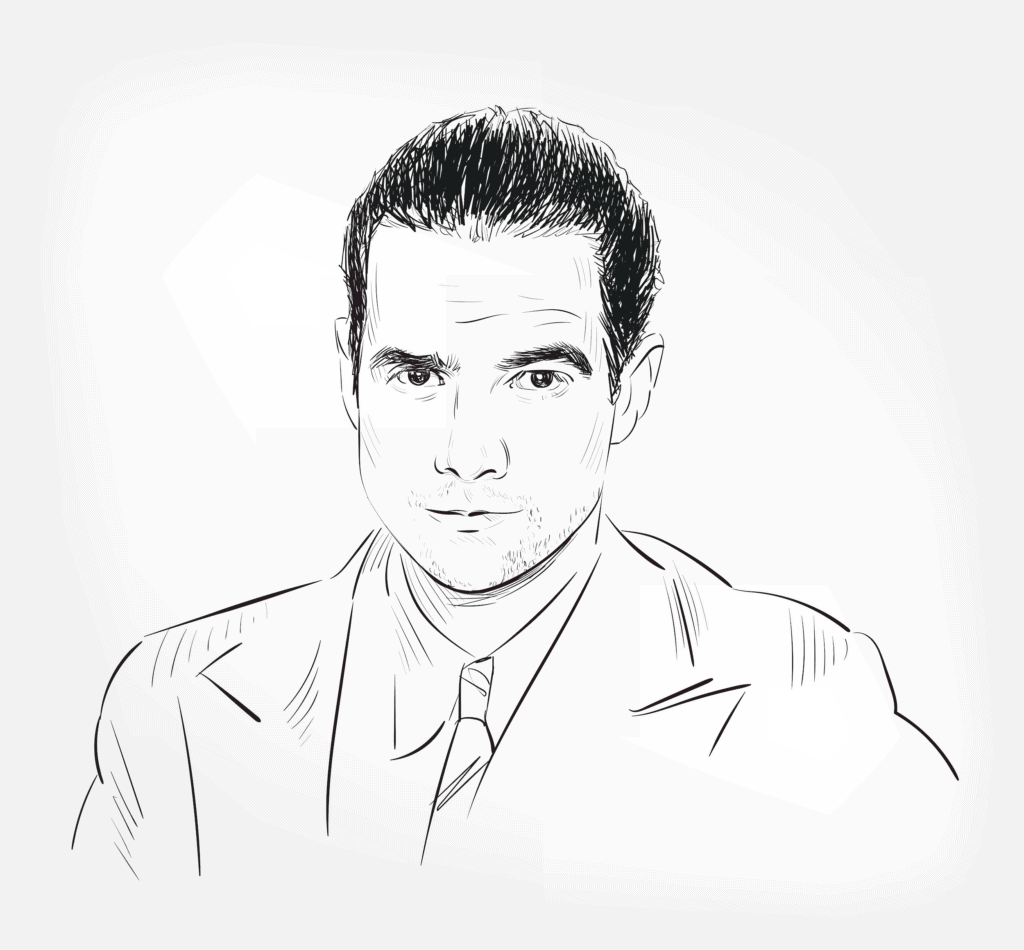Howard Hughes was one of the most successful businessmen in the world during his lifetime from real estate to making movies, he died with a net worth of $1.5 billion. So how did he make his money?
Howard Huges built up his fortune through an inherited tool corporation, making films, buying real estate, and aviation. He was born into a wealthy Texas family, which gave him the means to pursue a lot of different avenues. However, from a young age, he showed an entrepreneurial aptitude through inventions like a motorized bike he made at age twelve.

You can read more below about Howard Hughes’ family business, his pursuit of Hollywood filmmaking, and his aviation career.
The Hughes Family Business
In 1905, Howard Hughes was born to Howard Hughes Sr. and Allene Stone Gano. His father was an inventor and the owner of the Hughes Tool Company.
It was Howard Sr.’s foresight in filing the patents for a drill bit that initially made the family wealthy. This bit was a rock-drilling rotary bit invented during Texas’ oil boom and sold to oil companies for drilling.
The “Sharp-Hughes” bit revolutionized how the oil industry drilled into rocks. Hughes Sr. was also a bit of a dreamer having been quoted by a Harvard Alumnus report in 1912 as wanting to drill to the center of the earth.
Hughes Sr. never was able to drill to the center of Earth because he died in 1924 of a heart attack. His will left Howard Hughes Jr. 75% of the Hughes Tool Corporation with the remaining 25% going to Hughes Jr.’s grandparents and uncle.
Howard Hughes decided to buy his grandparents and uncle out of their shares of the business to have full ownership of Hughes Tool Corporation. He then appointed Noah Dietrich as the CEO and headed out to Hollywood to pursue a career in filmmaking.
Hughes’ Hollywood Career
Howard Hughes didn’t start off his Hollywood career as the prolific producer he is seen as today. His very first film, Swell Hogan, was a complete bust; however, this didn’t stop the Texan oil heir.
He went on to make four films over five years from 1926 to 1931. Three of these films were silent films and the comedy Two Arabian Knights won the Academy Award for Best Director of a Comedy Picture.
Hughes’ productions seemed to all be commercial successes from then on and he was often at odds with industry censors for risque content. This was very prominent in the productions of Scarface (1932) for violence and The Outlaw (1946) for Jane Russell’s revealing costumes.
However, Hughes made history with his production and directorial debut of the movie Hell’s Angels because of its budget. At a $3.5 million budget, it was one of the most expensive productions of its time.
You can watch the Hell’s Angels 1930 movie premiere below.
In 1948, Hughes used the Hughes Tool Corporation to venture into the ownership of RKO Pictures. His entire time at RKO was embroiled in scandal and lawsuits.
Upon taking over the company, he fired 700 employees and then performed interviews with the remaining employees to ensure that they were anti-communist and had political beliefs that were in line with his own.
This led to mini-lawsuits by shareholders accusing him of corporate mismanagement. In 1955 Hughes sold RKO to General Tire and Rubber Company, making a profit of $1 million and ending his twenty-five-year career in the entertainment industry.
Howard Hughes and Aviation
While Hughes loved films, there was something that he loved even more: airplanes. This may not come as a surprise to you if you have seen the movie about Hughes and planes titled The Aviator, starring Leonardo DiCaprio as Howard Hughes.
Howard founded Hughes Aircraft Corporation in 1932 and it was a major aerospace and defense company in America. The company invented and manufactured the Hughes D-2, H-1, H-4 Hercules, and XF-11, as well as air defense and traffic control products, spacecraft, and missiles.
In 1938, Hughes broke the record for fastest round the world flight, and he and his team were awarded the Collier Trophy. He did the flight in three days, nineteen hours, and seventeen minutes.
Other than these ventures, Hughes owned 78% of the shares of TWA at one point and owned Northeast Airlines and Airwest for short periods of time.